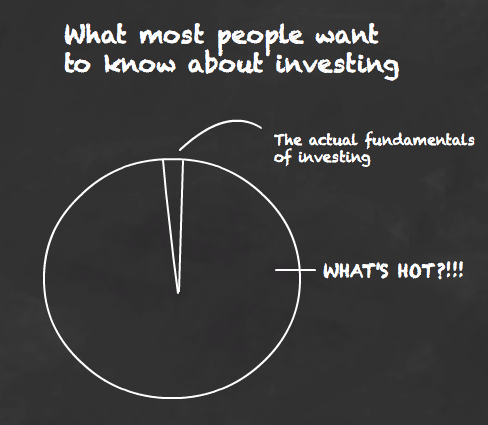Which is more important in your world: knowledge or skills? This question is the fulcrum of an ideological battle [1] being fought over our education system, and it’s a debate that also has ramifications for DIY investors [2].
- The champions of knowledge believe we need to command certain basic facts to operate effectively in society – the essentials of science, literature, history, and geography. Without these fundamentals, you’re like a driver who can’t read road signs or markings.
- The advocates of skill argue that a robotic recall of verb conjugations and the Kings of England should take a back seat. They favour building prowess in problem-solving, debating, hypothesising, and so on.
While the obvious answer to my opening question is “Can I have both, please?”, I believe that knowledge is far more important to a DIY investor than skill.
 [3]
[3]
Licence to skill
I spent a long time at the beginning of my investment journey [4] furrowing my brow over the fact that I didn’t know how to read company accounts, or work out the discount rate of future cash flows [5], or have the seemingly God-given ability of my peers to declare the market ‘fair value’ [6].
Such skills seemed like concealed weapons. You’d only glimpse a flash, enough to let you know ‘they’ could slip through the investing maze like ninjas. But the application of these powers was as shadowy as their utterances of success.
Now I just don’t worry about it.
Even talking heads in the fund management industry are happy to go on record to say that skill is so abundant [7] in their field that the winners and losers are mostly separated by luck.
And that suits me. Because whereas skill might let you play in the deep end of the pool, knowledge enables you to stay safe in the shallows.
It’s the difference between taking a couple of martial arts lessons and walking in to the wrong pub shouting “I’ll take you all on”, and knowing enough to avoid staring at the shaven-headed gentleman with a spider-web tattoo on his face.
The basic facts are much easier to acquire for an amateur than superior skills. Knowledge is an all-you-can-eat buffet in the digital age. You can stuff your face with it via blogs and books.
The only question is what you choose to swallow.
Knowledge Base Alpha
My research quickly taught me to stop asking the question that all my non-investing friends ask:
“What’s hot?”
It doesn’t matter. By the time an asset class is hot, it’s probably already too late to make big money.
I don’t worry about tips from commentators or newspapers. Even if they throw the dart in the right direction, the smart money has already moved on.
The market is the consensus of expectations on the future of a stock. Only unexpected events can shift the price. How can you predict the unexpected? The short answer is: you can’t.
I know that diversification [8] is the only free lunch going. I load up on all the useful asset classes while resisting the siren call of ‘the next big thing’.
I understand how asset classes [9] work. I know that equities are volatile and that nothing is truly safe [10]. If the market crashes I won’t panic [11] because I know it will probably recover. I won’t hunker down in cash, refusing to believe in inflation.
BRICs? Gold [12]? Hedge funds? The Fear Index? Low vol ETFs? High yield funds? I know that keeping up with fashion and labels will cost me dear.
Behavioural finance tells me that I’m a pitiful collection of psychological defects [13], about as capable of self-discipline as a bonobo at a swinger’s party.
The more we learn, the less we know
In the face of all the evidence that I can’t market-time, pick winners or even trust myself, passive investing using index funds [14] is the only strategy I feel confident enough to stake my financial future on.
Sure, I love reading yarns about the prospects for gold, timber, or Lego [15] bricks, but I now know that’s no basis for a portfolio.
My best bet is to invest in a diversified portfolio [16] of low-cost trackers and sit tight.
Doing very little sounds too easy. In some ways it is. Portfolio maintenance costs me less than an hour a month.
But it’s simultaneously the hardest part of passive investing.
Surely I should be doing something? Anything? Surely I’ve got enough skill by now to test my mettle in the market with more active [17] investment strategies?
No. I’d be better off composing a passive investor’s prayer that wards off temptation.
Staying on the straight and narrow is hard, but knowledge and education are the best way to keep on track [18].
Take it steady,
The Accumulator